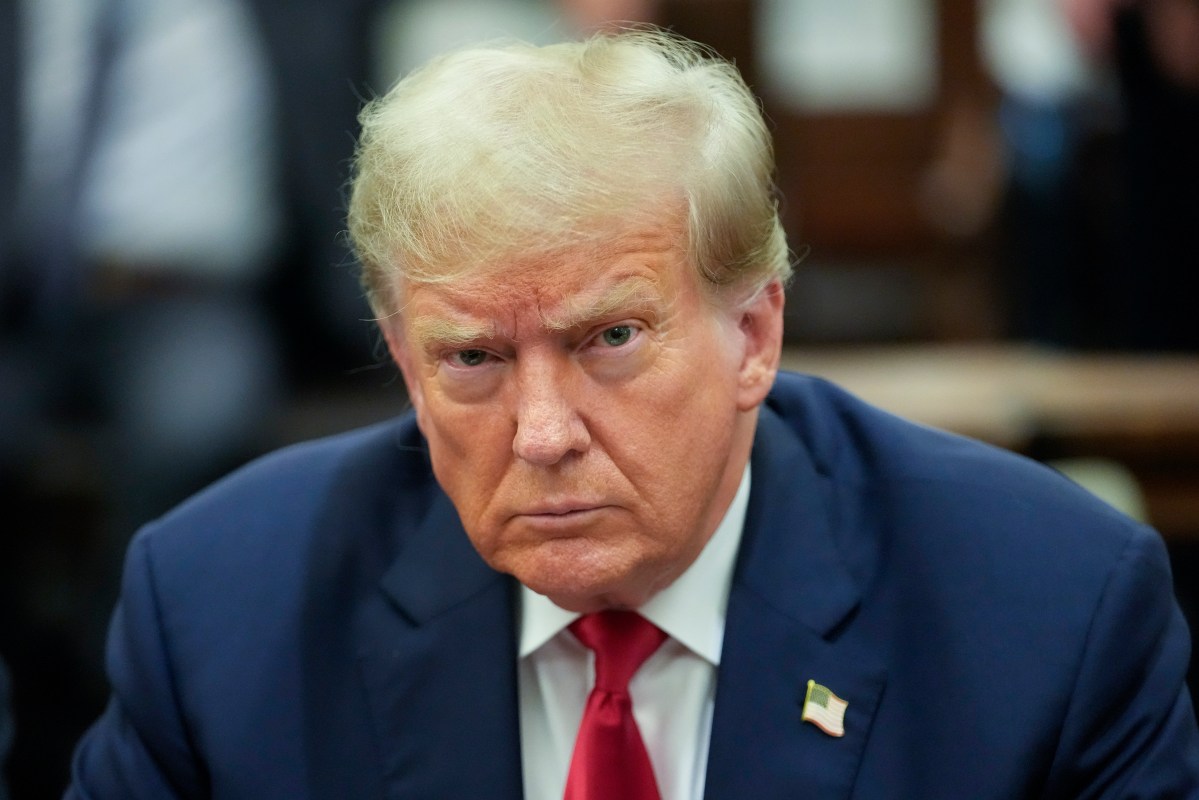This past week, Donald Trump, the autocrat-as-defendant, was in court, going so far as to contribute to a closing statement, which is about as rare as a passenger walking up to the cockpit and taking control. The move smacked of the way his mentor, the crooked lawyer Roy Cohn, won an acquittal a half-century ago.
Trump claims the cases against him constitute “election interference” by Joe Biden to derail his campaign. Now, Trump says he will attend all trials and hearings, even when he is not required to be there.
Norm-breaking isn’t exactly new for Trump, who, as president, smashed them daily, attacking the free press as “enemies of the people,” immigrants, Muslims, military heroes, and cherished allies. He tried to steal an election, after all, and this time around, he vows to be dictator for a day and terminate the Constitution.
Still, nothing Trump has said or done compares with his assertion that a president has a right to assassinate his political enemies with immunity so long as he’d been acquitted in an impeachment trial.
This is a lesson from Autocrat 101. In China, Xi Jinping’s foes disappear or are unceremoniously ushered out of the China Communist Party Congress convocations. Vladimir Putin’s critics die in mysterious defenestration or are poisoned or go down in strange private airplane crashes. Adolf Hitler and Joseph Stalin loved a good purge.
America’s leaders, however flawed, don’t rule by the sword. We declared our independence, fought a war with England, framed a Constitution, and established that we are a government of laws, not men—ruled by the ballot, not the bullet. And even our criminal presidents have bent the knee. After all, Richard Nixon handed over the White House tapes that sealed his downfall after the Supreme Court ordered him to.
I have lived under 15 presidents, starting with Franklin Roosevelt. Until the other day, despite all we’d seen, I thought the system could withstand a Trump. I’m less confident now.
True, Trump said when he ran in 2016 that he could murder someone on Fifth Avenue, and his base would vote for him. Still, I took his statement as hyperbole meant to denote the fervor of his supporters, not that a foreshadowing of his saying he could do it and be spared punishment.
Trump’s lawyer, D. John Sauer, made the authoritarian argument in Trump’s presence that a president could order the Navy’s Seal Team Six to assassinate a political rival and out of office would be immune from prosecution unless he was first impeached by the House and convicted by a two-thirds vote of the Senate. Hold on to 35 senators and start firing.
To be fair, the judges weren’t buying it. When the three-judge panel of the D.C. Circuit noted that Trump had said during his two impeachments that he could be tried criminally later—an argument Mitch McConnell echoed—Sauer said words to the effect of, that was then, and this is now. A legal shell game, where his counsel could argue immunity one day and not the other, is what you’d expect from Trump. But this isn’t hypocrisy. It’s despotism.
America started as a country with two gifts: a president named George Washington, who gave up power when he could have kept it, and a written Constitution, which created a system of checks and balances.
When Harry S. Truman seized the steel mills, when George W. Bush imprisoned alleged terrorists in Guantanamo, and when Trump himself sought to ban Muslims from the U.S., the Supreme Court said, “Stop the music” and modified the presidential edict to the requirements of the law—maybe not to everyone’s taste but a line was drawn.
However, a system designed in the 18th century with the assumption that men (and later women) of honor and integrity would predominate has met its match with a scoundrel who does it all, from receiving $7.8 million in payments from foreign countries to mishandling state secrets and now claiming the right to assassinate domestic political enemies.
Trump left Washington in disgrace in 2021, but the history of autocratic leaders is that they return. Napoleon came back from Elba. Juan Peron came back from exile in Argentina. And when Trump emerged from Mar-a-Lago, not deterred by four indictments alleging 91 felony counts to be the prohibitive GOP frontrunner in 2024, most Republicans cheered him on. Even his principal GOP opponents for the presidential nomination, Nikki Haley and Ron DeSantis, have vowed to pardon him.
Unless the Supreme Court disqualifies him, which seems unlikely in the extreme, the Constitution is on the ballot this year. So is our position in the world. Ian Bremmer, founder of the Eurasia Group, says the prospect of Trump’s re-election is the number one global security risk we will face next year. He writes: “The presidential election will deepen the country’s political division, testing American democracy to a degree the nation hasn’t experienced in 150 years and undermining U.S. credibility internationally.”
In 1935, amid the consolidation of fascism in Europe, Sinclair Lewis’s dystopian novel described an American demagogue who, after fomenting fear and promising drastic economic reforms while promoting a return to patriotism and traditional values, wins the presidency and imposes totalitarian rule via a paramilitary force. It Can’t Happen Here’s none-too-subtle moral is that it can happen here. I fear in 2024, it might.



